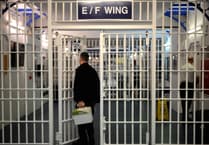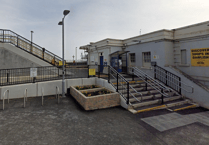I CONSIDER myself very fortunate that as Council Police Advocate and coordinator of Newton Abbot Speed Watch, I can meet with police officers.
That was my first eye-opener because I was not aware that the three counties operated under one umbrella but learned it’s a result of a formal alliance entered into seven years ago in a bid to improve delivery and save money.
My ignorance continued as I assumed I knew a considerable amount about what the team does – how wrong I was.
I asked Supt Leisk roughly how many officers, of all ranks including civilians he had, and was surprised to learn that it’s as many as 300.
Assisting Supt Leisk are inspectors, sergeants, constables and staff. Don’t get carried away just yet, they are not all out there enforcing limits and dealing with road traffic offences.
There are several departments, some of which may be new to learn about. These include the Roads Policing Team, Speed Detection Team, ‘No Excuse’ Team, Forensic Collision Investigation, Serious Collision Investigation Team, Collisions Team, Disclosure and Civil Litigation Teams, Community Speed Watch Team, Traffic Offence Processing Teams, Automatic Number Plate Recognition (ANPR) Team, Roads Policing Training Team, Abnormal and Indivisible Loads Team and Vehicle Recovery Team.
I think we can agree that that is quite a list and they all play a intricate part in ensuring that our highways are being looked after. Think yourself fortunate to have such a dedicated team.
I asked why, on many occasions, it appears necessary to close a road for what can seem a considerable amount of time following a collision.
Supt Leisk made no apologies but said it was imperative that evidence was collected, photographed and, in the most serious cases, forensically catalogued, not least to enable the coroner to be given all the facts if needed.
Nothing is left to chance.
Superintendent Leisk also explained that vital evidence can be scattered over a large area and until the forensic team had all the information it required then the area must remain sterile.
Some sophisticated equipment is used these days, a single item of which could cost as much as £75,000 but should pay for itself through an ability to gather information easily and quickly. Supt Leisk stated it was never the intention to close a road longer than was necessary but that in some instances they were dealing with the loss a person’s life.
Officers have the unfortunate task of calling on the deceased’s relatives to inform them of events, hence the need to have detailed information beforehand as grieving families will be seeking answers.
So, next time you come across a diversion or road closure following of an incident, just pause for a minute and think of the reasons why.
Maybe you won’t become so frustrated that time is added to your travel plans when others may not be so fortunate.





Comments
This article has no comments yet. Be the first to leave a comment.